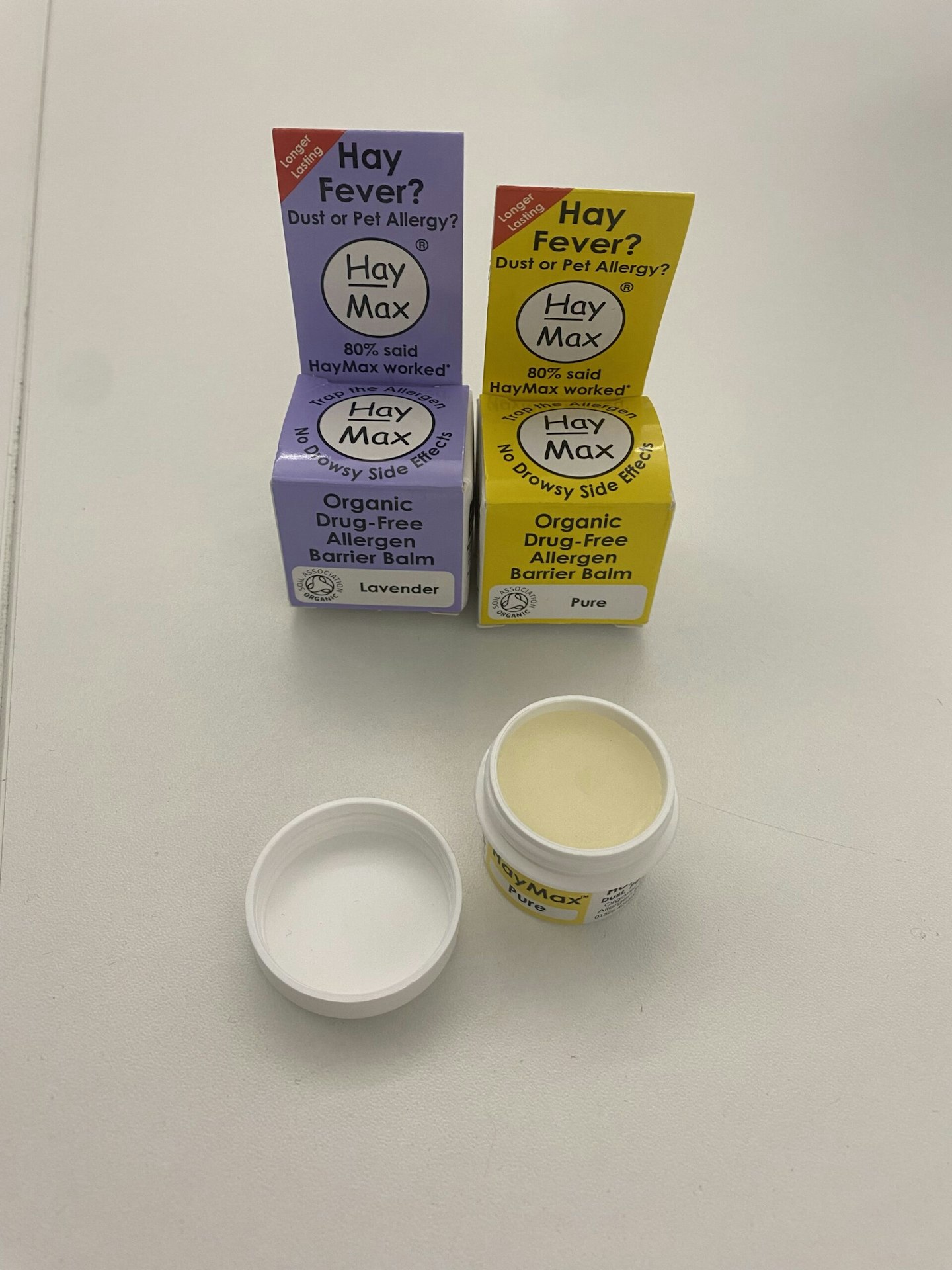Long time hay fever sufferer, Yours.co.uk Editor Claire Tapley has tried and tested the best natural and drug-free hay fever solutions. Here's her recommendations
While most of us look forward to the joys of summer; the warmer weather, outdoor picnics, walks in the countryside and the delight of being able to stay outside for that little bit longer, I dread it! Why? Because I've been suffering with hay fever since I was a child. I was told that it would improve with age but sadly I think it's only got worse! If you're a sufferer too you'll know that hay fever can ruin a day out in the great outdoors. The constant irritation of an itchy throat, tickly and runny nose and irritated eyes can sadly mean us hay fever sufferers feel the need to shut ourselves away from the world during the summer months.
There are of course many treatments available for hay fever, but there are also plenty of reasons why sufferers can't always take medicines containing antihistamines.
I spoke to Professor Adam Fox, the UK’s leading allergy and hay fever expert to discover when you should avoid antihistamines and what alternative natural remedies for hay fever could help alleviate symptoms.
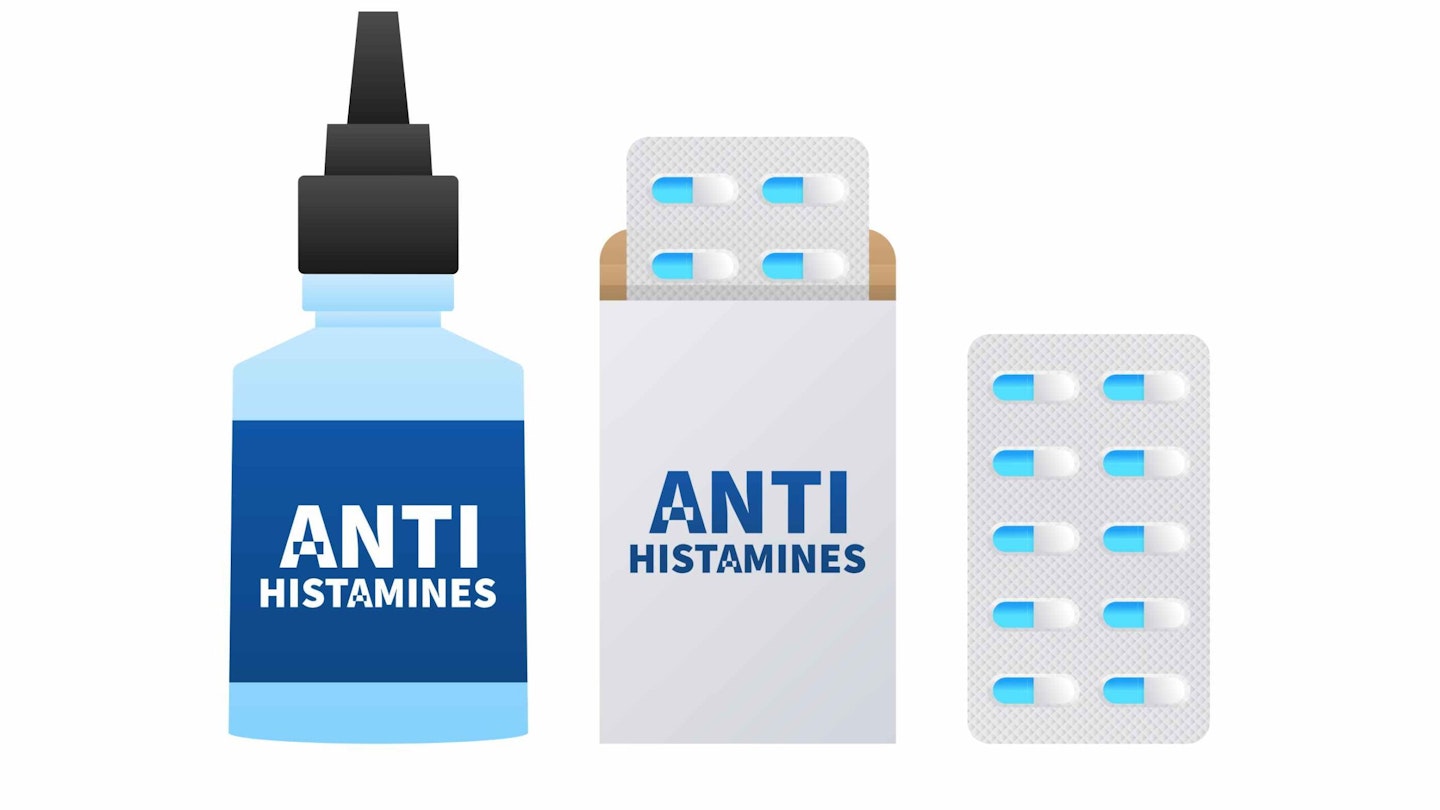
When shouldn't you take antihistamines?
If you are pregnant or breastfeeding it is advised you should not take antihistamines. This is due to a risk of birth defects and many medical experts recommend that they should not be used during the first trimester of pregnancy.
"Loratadine or cetirizine are usually fine to take during pregnancy and whilst breastfeeding," says Professor Adam Fox. "It’s important to speak with your pharmacist or GP if symptoms are impacting you, or if you’re not getting adequate relief from your current hay fever treatments."
You also shouldn't take antihistamines if you are also taking other certain kinds of prescription drugs including; erythromycin (antibiotic), or certain medicines used to treat fungal infections such as itraconazole or ketoconazole.
Drinking alcohol while taking antihistamines should also be avoided as the mixture can make you extremely drowsy.
You should also consult your doctor before taking antihistamines if you are taking any other treatments or drugs that cause drowsiness like opioid pain or cough relievers (such as codeine, hydrocodone), marijuana (cannabis), drugs for sleep or anxiety (such as alprazolam, lorazepam, zolpidem), or muscle relaxants (such as carisoprodol, cyclobenzaprine).
Antihistamines should also not be used if you have certain medical conditions. Anyone suffering from the following conditions should consult a doctor before taking antihistamines.
-
Enlarged prostate gland
-
Glaucoma
-
Breathing issue such as; asthma, chronic bronchitis or emphysema
-
Thyroid disease
-
High blood pressure
-
Heart disease
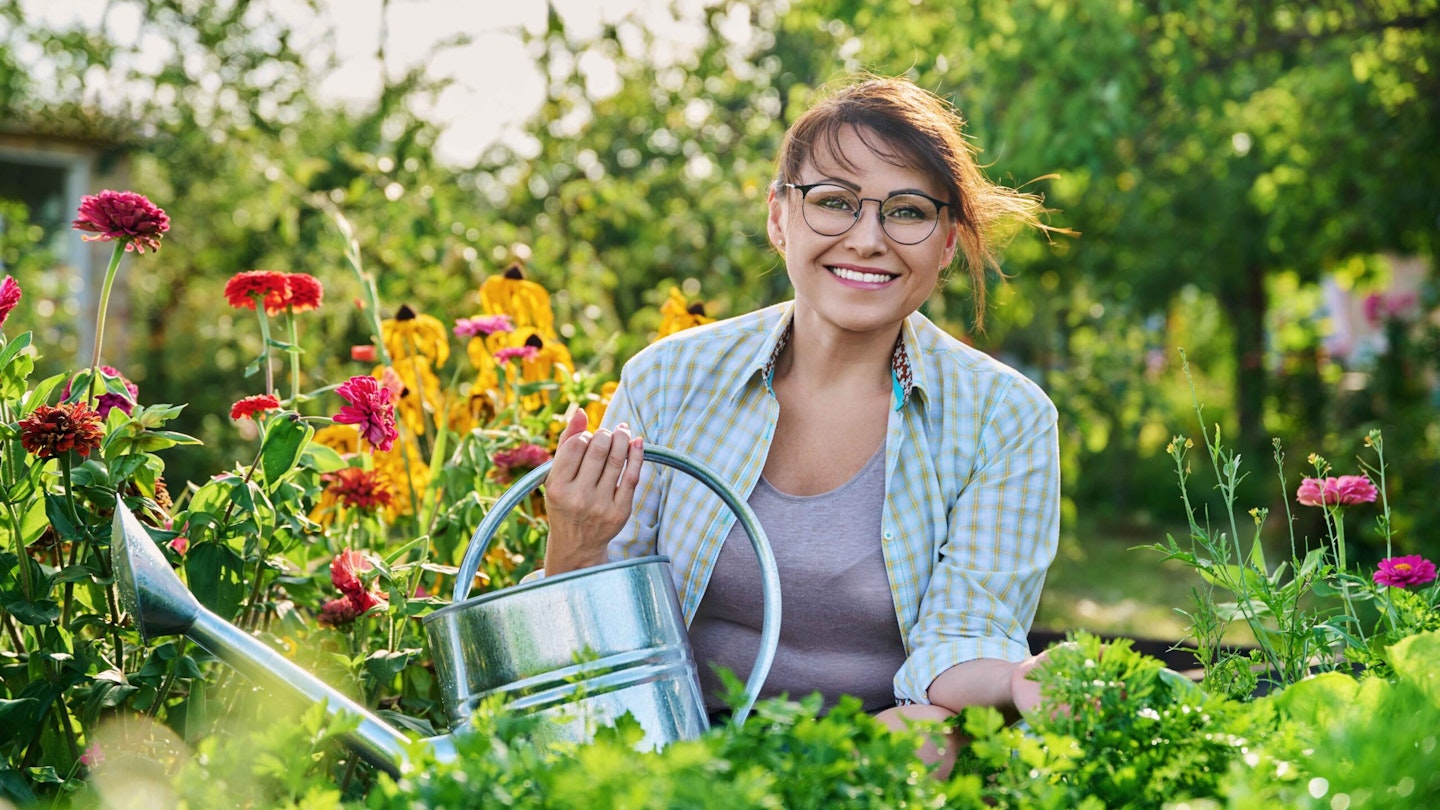
Natural remedies for hay fever
If you find you're unable to take medication or you want to limit your expose to pollen naturally, then it's worth trying some natural hay fever remedies. I asked allergen expert Professor Fox to recommend some practical ways that hay fever sufferers can limit their exposure to pollen.

-
Consider fermented foods: Having a diverse gut microbiome is associated with less allergies, so exposure to lactobacilli and bifidobacteria may help reduce symptoms.
-
Stay hydrated: There is some research to suggest that drinking water can be beneficial when struggling with allergies. Your body produces more histamines when it's dehydrated, so drinking water may potentially be good for allergies.
-
Plan your wardrobe: Wearing sunglasses (the wrap-around type are best) on sunny days can be effective at blocking the pollen getting into your eyes and causing reactions.
-
Avoid mornings: Pollen counts usually rise in the morning and reach their peak by midday so heading outdoors later in the afternoon can help to make spending time outdoors more manageable.
-
Shoes off! Avoid bringing pollen into your home by drying clothes indoors and taking your shoes off at the door. If you have a cat or dog that has been playing outdoors, limit the amount of pollen they bring into the house by combing their fur before they come in – or get someone else to do it for you if you can!
-
Cool off: If your eyes are feeling sore and itchy, try using a reusable cooling mask like Fusion Allergy Cooling Mask (£8.99 Boots) for 10 minutes to help soothe and relieve eyes and reduce redness and irritation.
-
Bedtime routine: Cleaning your eyelashes and washing hair before bedtime will help to avoid pollen and allergens rubbing off on to your pillow and causing symptoms to flare-up during the night.
The best natural hay fever products tried & tested
As a hay fever suffer I find that antihistamines do ease my symptoms, but even the ones that claim to be non-drowsy leave me lacking in energy and feeling tired, especially in the afternoons.
I first discovered some of these natural hay fever solutions when I was pregnant in summertime and unable to take antihistamines. Some of them were so good I still use them now, despite not being pregnant any more. I find they don't leave me feeling exhausted and drained and they do really help prevent the irritation of pollen.
Best natural hay fever products
This acupressure band works in a similar way to the ancient Chinese treatment of acupuncture, but without the use of needles. The band is placed over a pressure point known as the ‘QuiChi’ point. It is thought that the stimulation of this pressure point helps to relieve the symptoms of hay fever and allergic rhinitis. This band can be used by used by children over the age of 3 and has no side effects.
Tested by Yours.co.uk editor Claire Tapley: "I loved the idea that this band is completely drug-free and natural. I found it quite comfortable to wear but it only comes in one size, so it may not fit all.
The instructions show you clearly where to place the band, however I was never 100 per cent sure that I had in the right place and wondered if it moved throughout the day. I noticed my symptoms were a little better using this. I still experienced sneezing, but noticed my eyes were less itchy than usual. The one thing I didn't like about this was the fact it was very obvious on my arm. It is skin coloured but in summer you are normally wearing short sleeves so it's always on show. Also you might get some funky tan lines with this!"
Pros
- Natural drug-free alternative
- Great for kids
- A cheaper option than having to buy medicines
- Can be used every year
Cons
- Very visible on your arm
This organic and drug-free allergen balm has been hailed by many hay fever sufferers as their summertime saviour. The balm should be rubbed on the outside of the nostrils and the bones of the eyes. It works by trapping the pollen on the balm before it reaches the eyes or nose.
Tested by Yours.co.uk editor Claire Tapley: "I used this when pregnant and I can't rate it highly enough. I sneezed a lot less and my eyes were not as irritated. You do need to constantly reapply it , especially after sneezing and wiping your nose with a tissue. I’d also say wash your hands before putting on the balm in case you have traces of pollen on them. I particularly like using the lavender scented balm as I found it found it very soothing and relaxing. It's also very moisturising so helps soothe a nose that is sore from being constantly wiped!"
Pros
- Organic and drug-free
- Soothes a sore nose
- Comes in a range of scents including lavender, pure and aloe vera
- Works for those with pet and dust allergies
Cons
- Need to apply frequently
This handy combination of wipes and balm both help to prevent and remove pollen from causing irritation to hay fever sufferers. The wipes are enriched with tea tree and peppermint oil which help to remove pollen from your skin and also act to soothe skin. The balm works by trapping pollen when rubbed around the rim of the nostrils.
Tested by Yours.co.uk editor Claire Tapley: "I found this set of balm and wipes really useful to have when on the go. The balm is great for preventing pollen getting into or up your nose. It has a lovely scent of aloe vera. I tended to apply the balm throughout the day then I used the wipes when I came in from the outside. They were very refreshing and I certainly noticed I had less symptoms than usual when returning home. I did feel that you could get the same effect from using baby wipes, but I liked the peppermint and tea tree scent that these wipes had."
Pros
- Works for those with pet and dust allergies
- Natural and drug-free
- Lovely scent of peppermint, tea tree and aloe vera
Cons
- Could be cheaper to use baby wipes
Although this nasal spray isn’t specifically marketed at being a treatment for hay fever its saline solution is said to work wonders for sufferers. It’s drug-free and totally natural, meaning it can be used by babies, breastfeeding mums, children, the elderly - the whole family!
Tested by Yours.co.uk editor Claire Tapley: "This saline based nasal spray is pleasant to use, and unlike many other nasal sprays I’ve tried, has a pleasant back of the throat taste. I also found the solution to be very moisturising on my sore nose. I was really impressed with how well it works as a natural decongestant. It cleared my blocked nose very quickly.”
Pros
- Pleasant taste
- Drug-free
- Natural decongestant
- Soothes nose
Cons
- Slightly more expensive than some other nasal sprays
This highly moisturising balm from Balmonds is said to help hay fever sufferers in three ways. Firstly when applied to the nostrils, upper lip and eyes it catches pollen and other allergens before they trigger a histamine attack.
Secondly, it protects the sensitive skin around the eyes and nose from dampness as it is waterproof.
Salty tears and mucus can cause damage to sensitive skin, leaving it red and raw. Thirdly, it soothes sore, dry or itchy skin and works as an effective ointment against sneezing noses, streaming eyes, and general inflammation. It can lock in moisture and reduce further damage to the skin barrier.
Tested by Yours.co.uk editor Claire Tapley: "This balm is real all-rounder as it can be used be used to treat virtually any skin condition, so if you suffer with dry skin it’s well worth investing in. I used this on my nostrils and found it was quite thick and greasy. The smell wasn’t unpleasant, but wasn’t as fragrant as some other balms. It definitely helped keep pollen away from my nose and eyes and was incredibly moisturising, but I was conscious that I had a rather shiny looking nose!”
Pros
- Very moisturising
- Soothes skin
- Drug-free
- 100% natural
Cons
- Some may find it a bit greasy
Fusion Allergy Spray provides instant symptom relief for dry, irritated eyes and eye-surrounding skin. It helps to reduce inflammation and also calm eye irritation caused by air conditioning, wind, air pollution or swimming pool water. The effects are said to last for up to 3 hours.
Tested by Yours.co.uk editor Claire Tapley: “I’ve used eye drops many times but this was the first time I’d used an eye spray to help with hay fever symptoms. I really liked how it soothed my sore and itchy eyes after a flare up. It felt very refreshing and instantly stopped the itching. The ectoin in the spray formula acts as a shield to prevent the pollen entering the tear film.”
Pros
- Soothes inflamed eyes
- Preservative-free
- Great alternative for those who don't like using eye drops
Cons
- May cause eye makeup to run
This soothing drug-free nasal spray provides relief from symptoms as well as protecting the body from airborne allergens. It helps to reduce nasal congestion and reduces inflammation. It works by coating the nose with a protective shield that blocks pollen. It is said to last for up three hours.
Tested by Yours.co.uk editor Claire Tapley: "I used this nasal spray before I went outside and found it worked really well. The liquid itself is a little slippery but this is probably what repels the pollen. My symptoms were noticeably better when using. It didn’t last 3 hours for me and I had to reapply but I found it a very effective natural treatment.”
Pros
- Drug-free
- Reduces inflammation
- Unblocks nose
Cons
- May not last 3 hours

Top hay fever tips from a Pharmacist
Independent Pharmacist Rita Ghelani explains the best treatments for the many annoying symptoms of hayfever.
Q: What treatments work best for hayfever?
"The first line treatment for hay fever is usually antihistamines. These work by reducing or blocking the amount of histamine produced by the body in response an allergic reaction to allergens, such as pollen. This will calm down all the general symptoms of hay fever, such as sneezing, irritation of throat and nose. People often have to try different antihistamines to find the one which best suits them."
Q: What treatments would you recommend for nasal congestion, sneezing and painful sinuses?
"Try to cleanse the nose regularly with a saline nasal spray. This will get rid of pollen and other particles that may be causing irritation in the lining of the nose. Saline nasal sprays are a natural way to manage nasal symptoms of hayfever.
If the symptoms are more severe then try an anti-inflammatory nasal spray, sometimes referred to as a steroid nasal sprays. It takes a few days for steroid nasal sprays to have an effect. If you have had not tried a steroid nasal spray before, start with one that contains beclomethasone, which is used twice a day – morning and evening."
Q: What do you suggest for for Itchy, red & gritty feeling eyes?
"Try using sodium cromoglicate eye drops. These make the eyes less sensitive to allergens such as pollen and reduce irritation. These eye drops need to be used regularly four times a day to keep the levels of the active ingredient high enough for them to be effective. Keep using them even if your eye symptoms have improved."
Do hayfever wipes work?
"Hayfever wipes are a new product that has made it to the shelves this year. I personally don’t recommend these are they can only be used to clearly away pollen from the skin. These wipes contain natural oils, such as tea tree or peppermint, which give a cooling and soothing feel on the skin. A layer of these natural oils left on the skin after using the wipes will help to reduce the pollen on the skin but will not directly help with easing any of the hayfever symptoms related to nose and eyes.
Physically removing pollen and allergens from the nose or eyes is a much more effective way of managing hay fever symptoms naturally. A saline nasal spray/wash for the nose will work well. Using a wipe to cleanse the inside of the nose is not advisable.
For the eyes try to rinse the eyes out with cool water at least twice a day – morning and night."
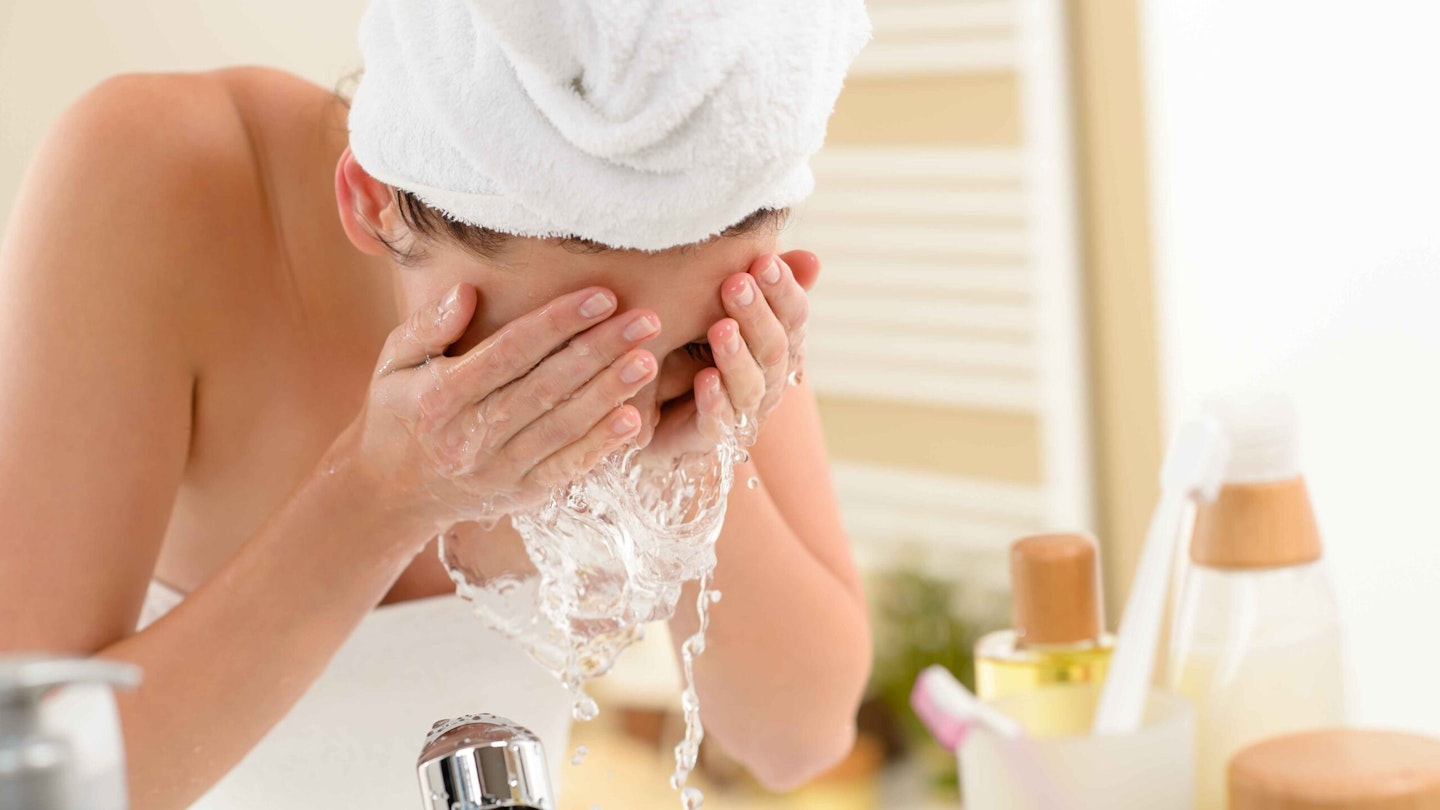
Any other hay fever tips from a pharmacist?
-
Wear sunglasses – this will limit the amount of pollen getting into your eyes.
-
Routinely use a saline nasal spray/wash – this will help reduce the symptoms of hayfever by clearing away the pollen as well as clearing away mucus that may be giving you a blocked nose.
-
Gargle with salt or plain water – this will clear away any pollen particles at the back of your throat after you have been out.
-
Try sucking a lozenge to help lubricate the back of the throat and soothe any itchiness or soreness at the back of the throat.
-
Try wearing a mask – I know it is uncomfortable in the summer months, but it keeps the pollen away from your nose
-
Take your antihistamine regularly, Don’t wait until you get symptoms of hayfever, it's better to proactively manage your hayfever.
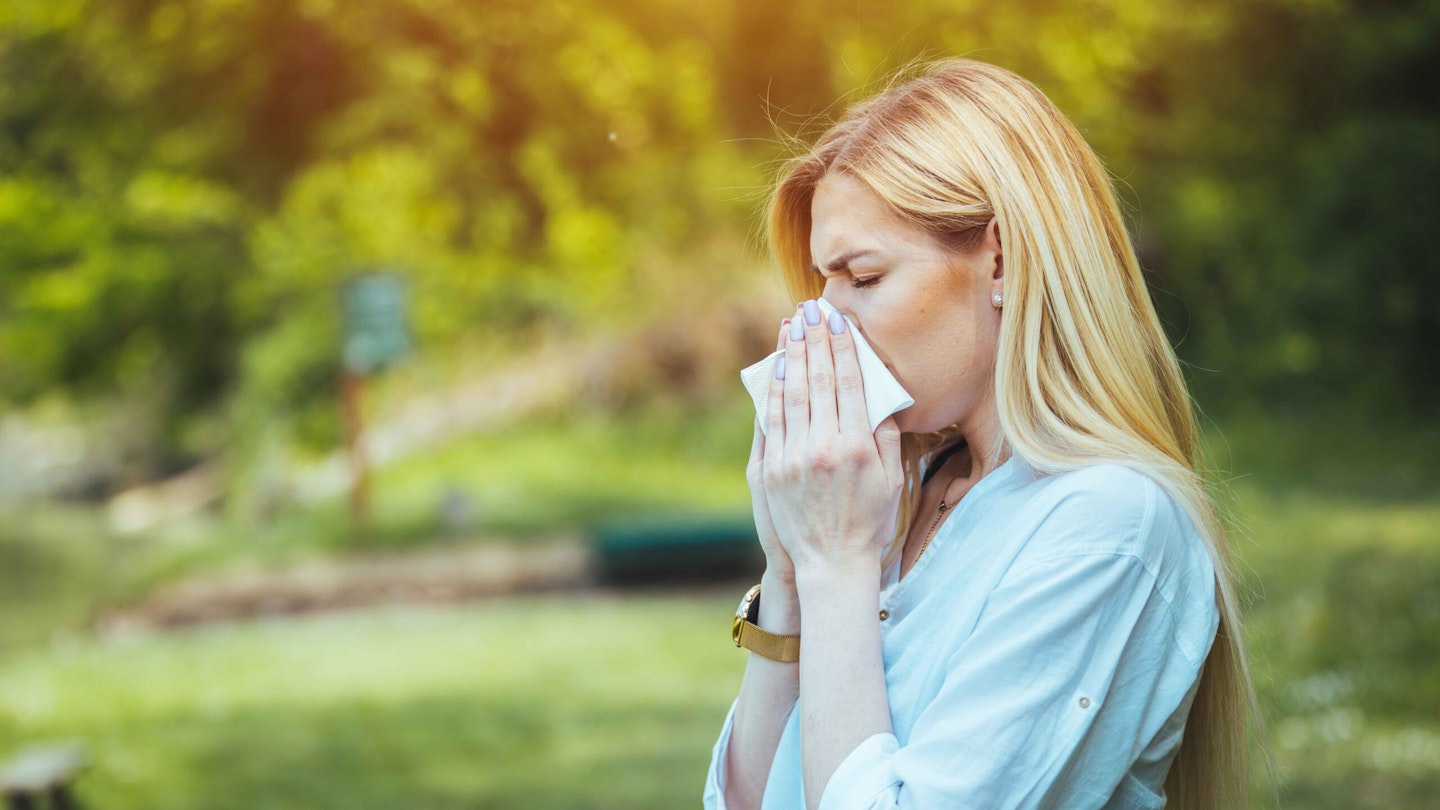
We spoke to Dr Edel Duffy, Head of Medical at FUSION Allergy to answer some of the most commonly asked questions about hay fever:
Hay fever FAQs
How can you tell if you are allergic to tree or grass pollen?
"Depending on the time of year, the type of pollen in the air will be different. Most people are allergic to grass pollen, which peaks in late May to the end of July. Tree pollen affects less people (around 25 per cent) and symptoms worsen for sufferers between late March and early June."
What is the correct way to effectively use a nasal spray?
"There are often misconceptions around how to use a nasal spray effectively, and getting it right is key to the product working effectively. The first thing to do is blow your nose, then once you’ve removed the cap from the bottle, hold the bottle with your index and middle finger on either side of the finger rests and your thumb underneath the bottle. Bend your head slightly forward and close one nostril. Insert the tip of the spray into your nostril. While pressing down the pump quickly and firmly, breath in gently through the nose. Repeat in your other nostril. Remember to always follow the instructions within the ‘Information For Use’ leaflet provided with the spray as instructions may vary."
Why do some people who don’t normally have asthma suffer from hay fever related asthma?
"Pollen can cause inflammation and constriction of the airways in some individuals. This condition, known as allergic asthma, occurs when the immune system overreacts to allergens, leading to symptoms like wheezing, coughing, and shortness of breath. The inflammation and mucus production in response to allergens can temporarily induce asthma symptoms even in those without a chronic asthma diagnosis."
Why do some hay fever sufferers experience an itchy throat when eating fruits like apples and cherries in summer?
"Fruits such as apples and cherries contain certain proteins which are similar to the proteins found in pollen, for example birch pollen. For an estimated 2 per cent of the UK population, the immune system mistakenly recognises the fruit proteins as pollen allergens, causing an allergic reaction in the mouth and throat, known as oral allergy syndrome (OAS)."
Claire Tapley is a digital editor for Yours.co.uk. She is a journalist with over 16 years' experience writing for women over 50. In her previous role she was Deputy Editor on Yours magazine for nine years.
Claire is extremely passionate about all things health related, specifically fitness and healthy eating. She has a huge amount of knowledge on all areas that interest women over 50 including health, wellbeing, finance, food, tech, beauty and fashion.


